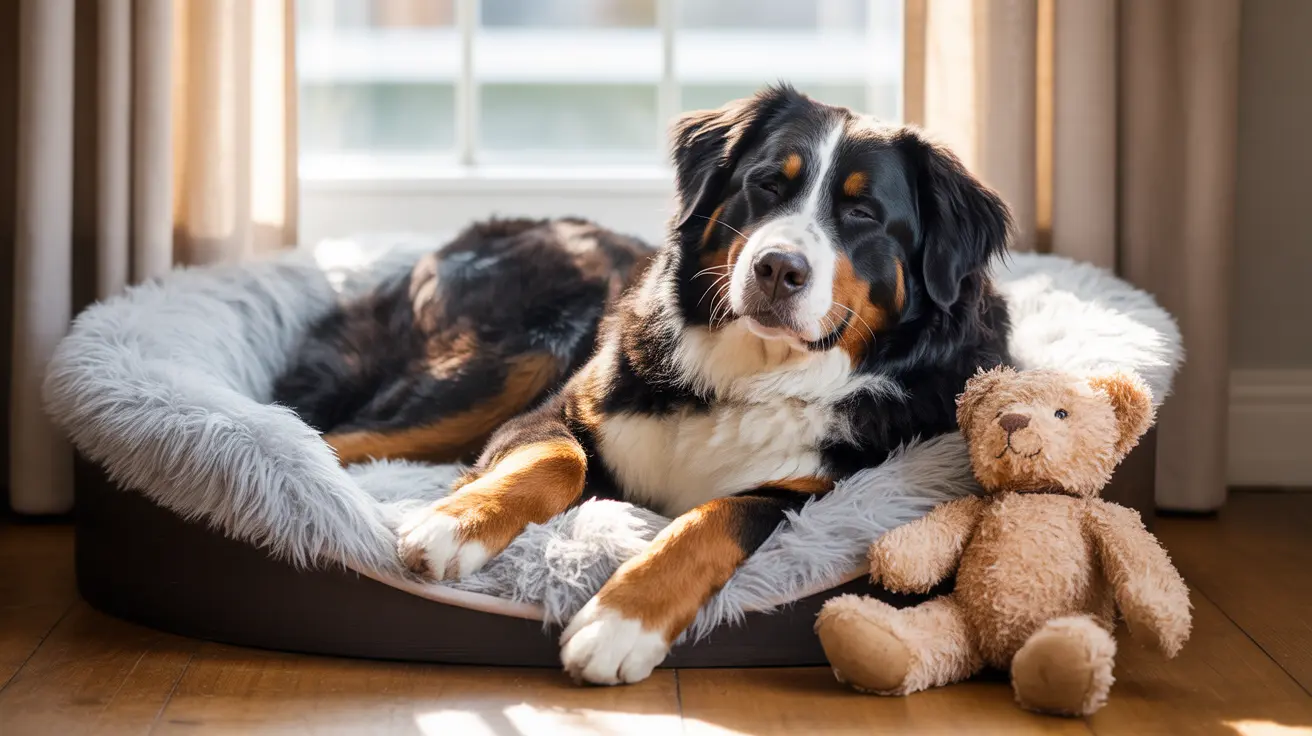Understanding Normal Dog Sleep Patterns
Dogs naturally require more sleep than humans, with most adult dogs sleeping between 12 to 14 hours daily. This sleep pattern is completely normal and helps maintain their health and energy levels. However, when you notice your dog sleeping more than their usual pattern, it's important to understand what might be causing this change.
Different factors influence how much sleep your dog needs, including age, breed, size, and activity level. For instance, large breeds like Saint Bernards typically sleep more than smaller, more energetic breeds like Jack Russell Terriers.
Age-Related Sleep Changes
Age significantly impacts your dog's sleep requirements. Puppies often sleep 18-20 hours daily as their bodies grow and develop. Senior dogs also tend to sleep more, sometimes up to 18 hours per day, due to decreased energy levels and slower metabolism.
Middle-aged dogs generally maintain more consistent sleep patterns, but individual variations are normal based on lifestyle and health status.
Medical Causes of Increased Sleep
Physical Health Conditions
Several health issues can cause your dog to sleep more than usual:
- Hypothyroidism
- Diabetes
- Infections or fever
- Anemia
- Heart disease
- Medications side effects
Neurological Factors
Brain-related conditions can affect sleep patterns, including:
- Canine cognitive dysfunction (doggy dementia)
- Brain tumors
- Seizure disorders
Behavioral and Environmental Causes
Sometimes, increased sleep stems from lifestyle or environmental factors:
- Recent increases in physical activity
- Changes in household routine
- Seasonal changes (especially heat)
- Boredom or lack of stimulation
- Depression or anxiety
- Recent moves or family changes
When to Be Concerned
While some sleep changes are normal, certain signs warrant veterinary attention:
- Sudden dramatic increases in sleep time
- Difficulty waking your dog
- Lethargy during waking hours
- Accompanying symptoms like appetite changes or vomiting
- Disorientation or confusion when awake
Prevention and Solutions
To help maintain healthy sleep patterns:
- Maintain consistent daily exercise
- Provide mental stimulation through toys and training
- Keep regular feeding and walking schedules
- Ensure comfortable sleeping areas
- Monitor any changes in sleep patterns
Frequently Asked Questions
Why is my dog sleeping more than usual and should I be concerned?
While some increases in sleep are normal, especially with age or after increased activity, sudden or dramatic changes in sleep patterns combined with other symptoms like lethargy or appetite changes should be evaluated by a veterinarian.
How does my dog's age affect how much sleep they need each day?
Puppies and senior dogs naturally sleep more than adult dogs. Puppies need 18-20 hours daily for growth and development, while senior dogs may sleep 16-18 hours due to decreased energy levels.
Can health problems like hypothyroidism or diabetes cause my dog to sleep excessively?
Yes, various health conditions, including hypothyroidism and diabetes, can cause excessive sleeping. These conditions typically present with additional symptoms and require veterinary diagnosis and treatment.
What behavioral reasons might make my dog sleep more, such as boredom or anxiety?
Dogs may sleep more due to boredom, lack of mental stimulation, anxiety, depression, or changes in routine. Ensuring adequate exercise and enrichment can help normalize sleep patterns.
When should I take my dog to the vet because of increased sleep or lethargy?
Consult a veterinarian if you notice sudden increases in sleep combined with lethargy, difficulty waking, confusion, or other symptoms like changes in appetite, thirst, or bathroom habits.






